Editor’s Note: There’s almost nothing as beautiful as the love that has stood the test of time. That is why this month, BellaNaija Features and BellaNaija Weddings are bringing you beautiful stories of couples whose love has not waned through the years with The Ever After Series.
Today, Prof. Philip and Dr Ayodeji Olataunji, who have been married for 45 years, are sharing their insights on love, marriage, and the forever journey. Let’s take you on a dive into their Ever After story. Ride with us!

_
A long, long time ago, two young people, fresh out of their National Youth Service, had a plan for their lives: work hard and become successful medical doctors. But then, love came knocking.
People say that the universe has a way of making dreams align, and when you meet someone who is the one, and who shares your dreams and plans, you know nothing else in the world matters. 45 years in marriage and the Olatunjis are waxing strong, their dreams aligning, their love more intense and their hearts still beating for one another.
For the Olatunjis, their decision to get married may have made some family members disappointed. For what it’s worth, two brilliant young people in the medical field who had just completed their NYSC were expected to pursue their careers, have their feet planted first and become financially stable before starting a family. But for the couple, marriage felt right at that time. And they weren’t wrong.
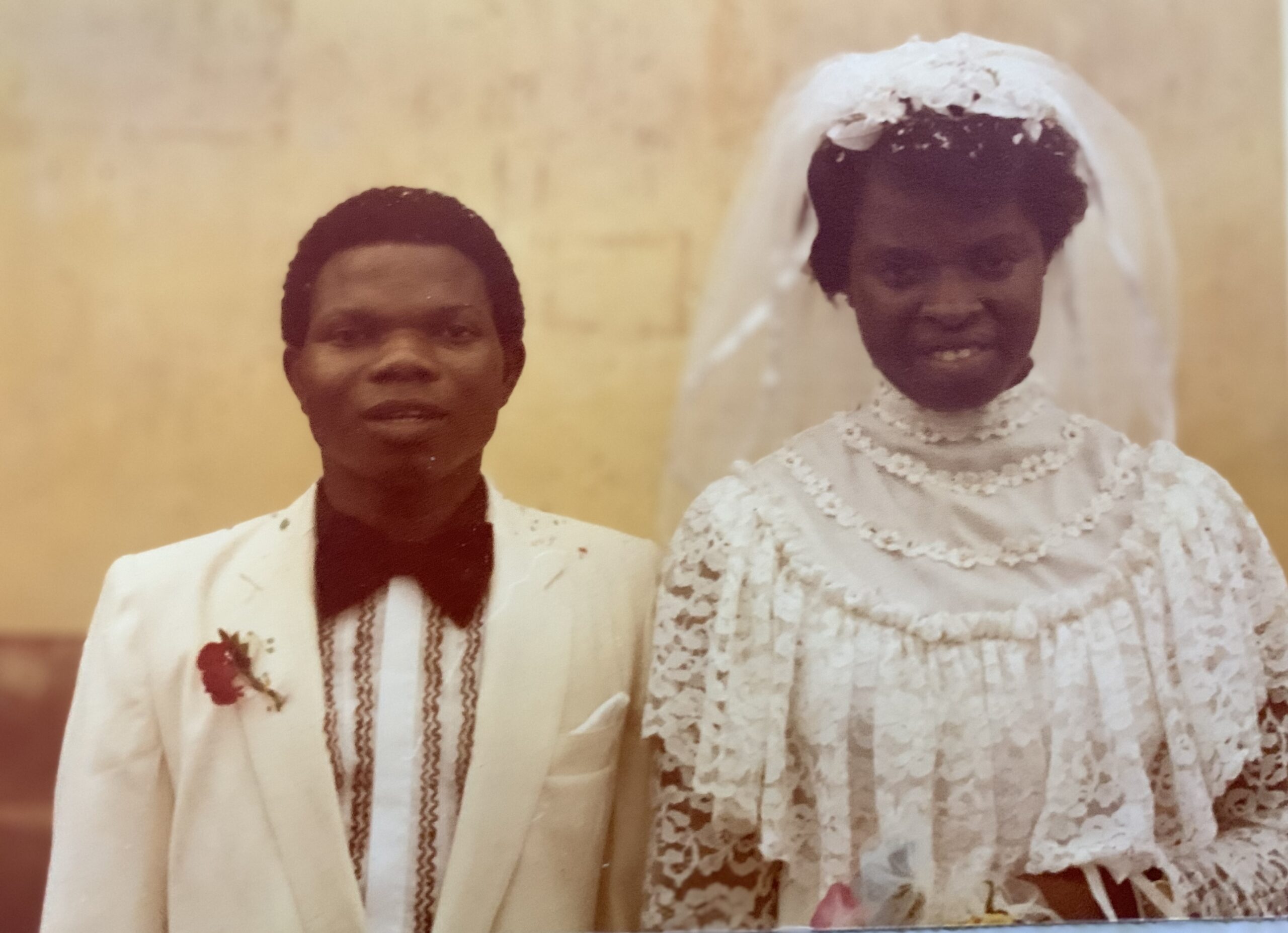
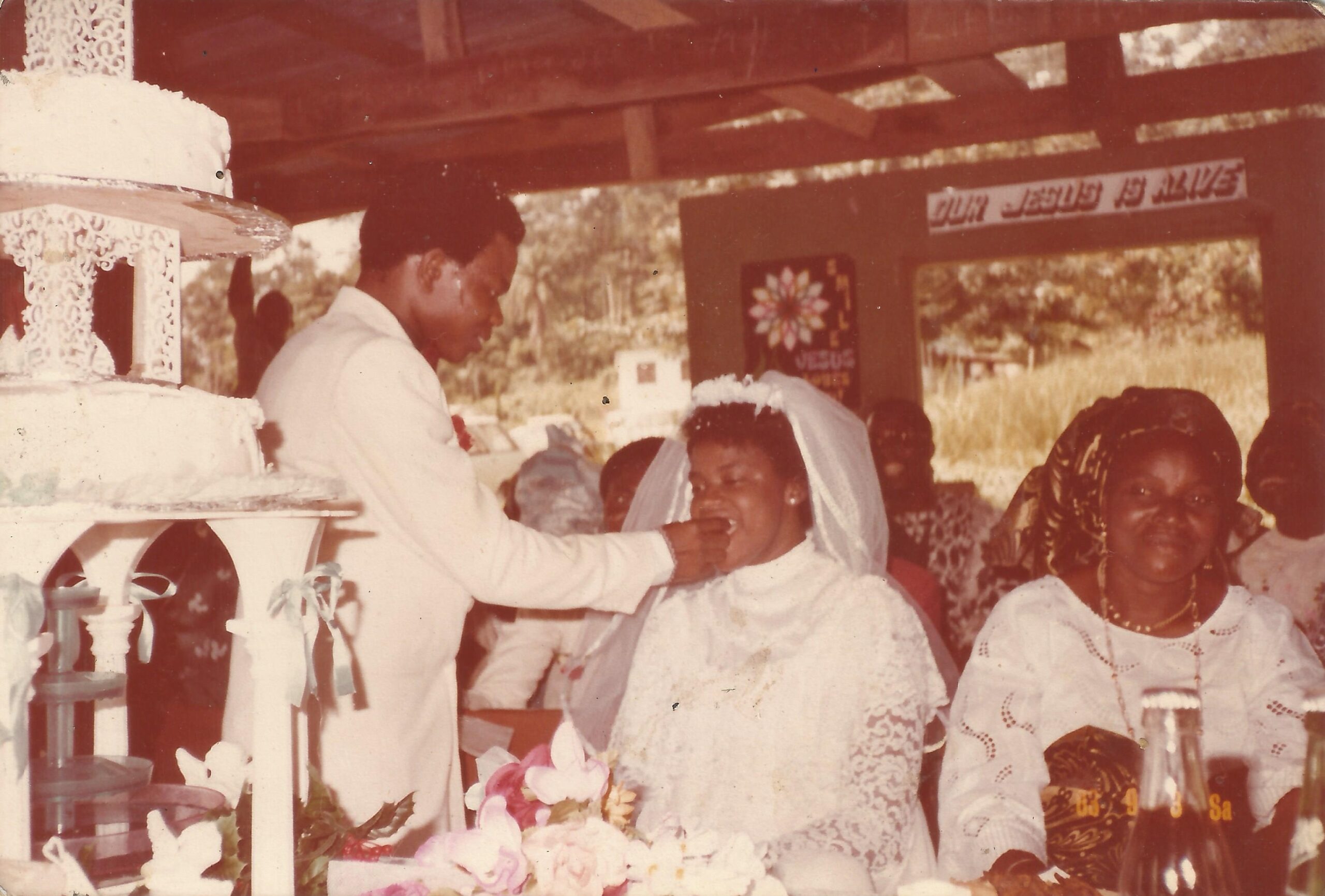
People are inclined to fight what they do not understand, so it didn’t come as a shock when both families didn’t approve of both spouses’ decisions, even after the wedding.
And there was their first battle to fight: the interferences of extended family members.
Prof. Philip: I have 3 elder sisters and they are very opinionated. They used to come to our house once in a while at the time we were still struggling. They’d complain about what we had or didn’t have, what we did or didn’t do, and I knew that I had to stand up to them in order to protect and defend my wife.
There was a time we had my mother with us and some of them felt that we were not rich enough, we were not doing things right and I had to tell them, “look, you can come and have your mother if you are not satisfied” but that didn’t happen. My mother stayed with me until she passed on.
At first, it caused a little bit of misunderstanding but because we continued to show love to them in spite of that, they later came around became close to my wife. Now, they call her sometimes more than they call me and she also calls them.
So, sometimes, the protection of one another depends on each other and I also know that there are times when if you do not stand for your spouse before your own people, nobody will stand for him or her.
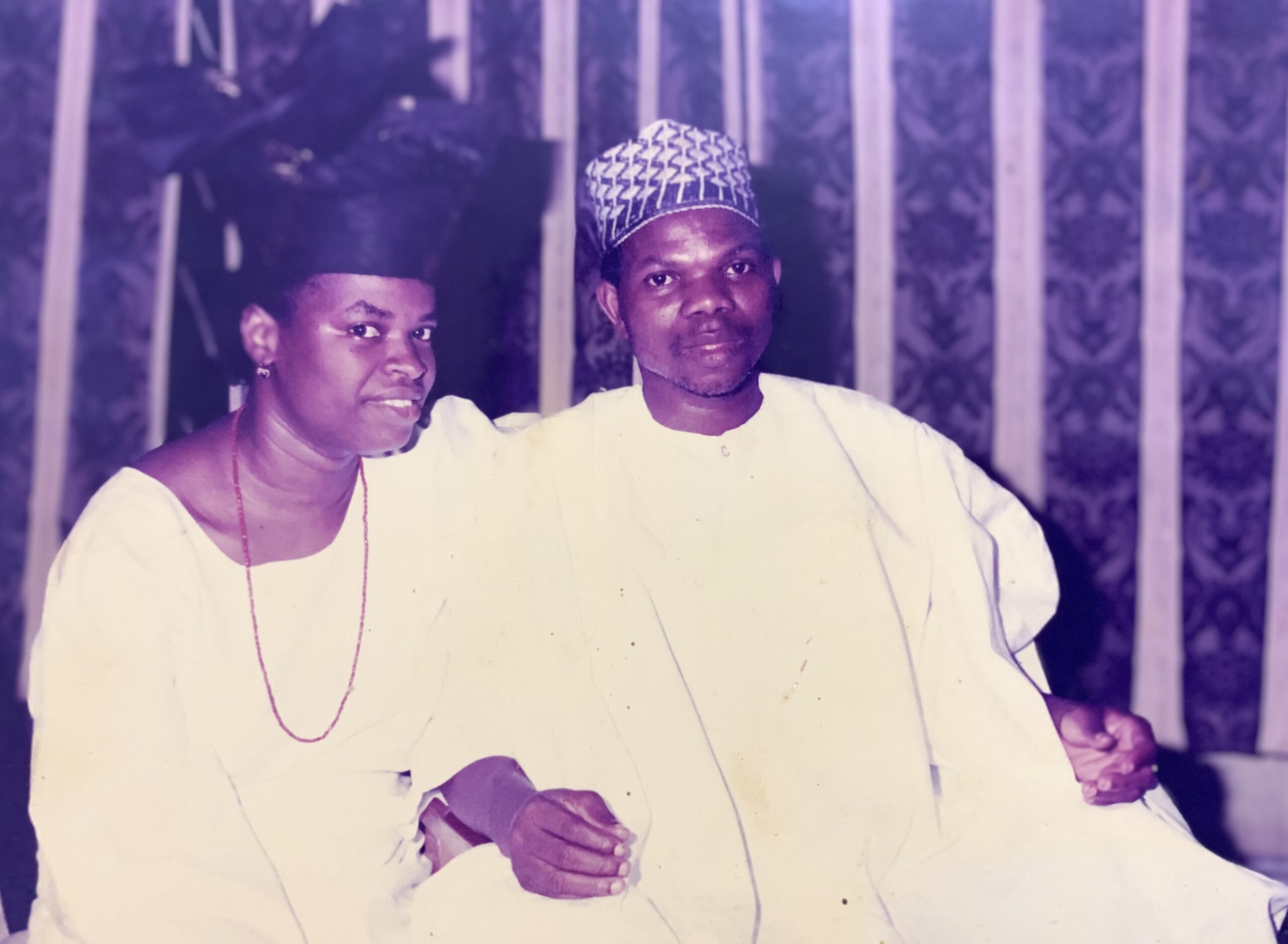
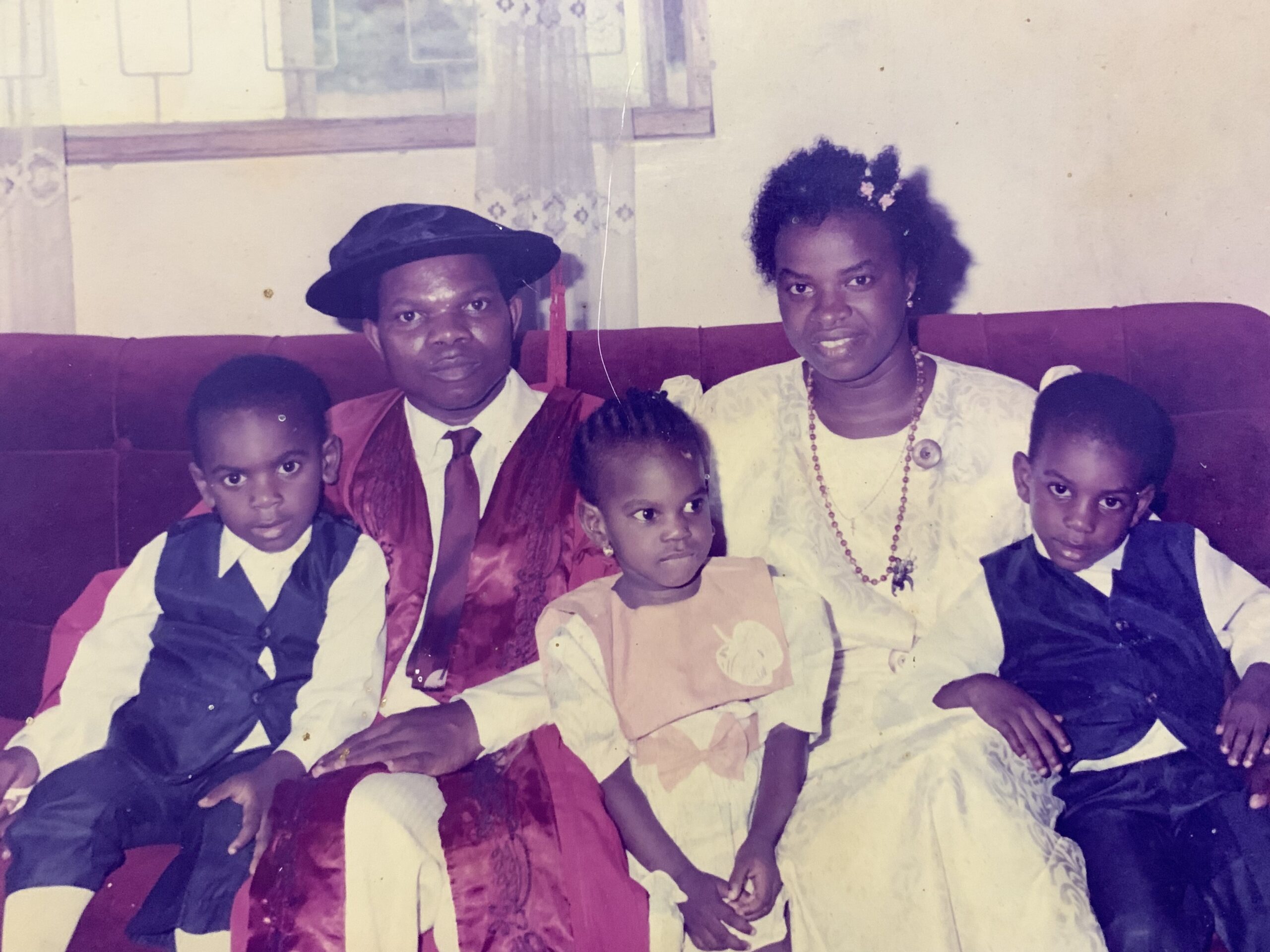
The Olatunjis may have been moving at a slower financial pace than what their family members expected of two young doctors. But there was something they had: an understanding of what marriage truly meant and the determination to make it work. “In thick and thin” are vows that should never be broken.
Dr Ayodeji: The word determination makes a whole difference. I remember when we first got married – I think in the first 3 years – we were post youth-service and rented an apartment in Ibadan. My father came on a visit and felt disappointed. Two doctors, no furniture, nothing. When we finished our discussion, he said, “I’m going to get a furniture man to finish a set of furniture for your house.” I knelt down and told him, “No.”
He said, ‘no, I’m just helping’ but I stood my ground. This is because I knew my father. I knew somewhere along the line in future, he may talk about it and I wouldn’t like it because it’s not as if we weren’t thinking about it. We were just taking our time and as at then, we already made a deposit for the furniture and weren’t in a hurry. So we stayed in our house the way we were. We had our speakers as seats, and a mat in the sitting room.
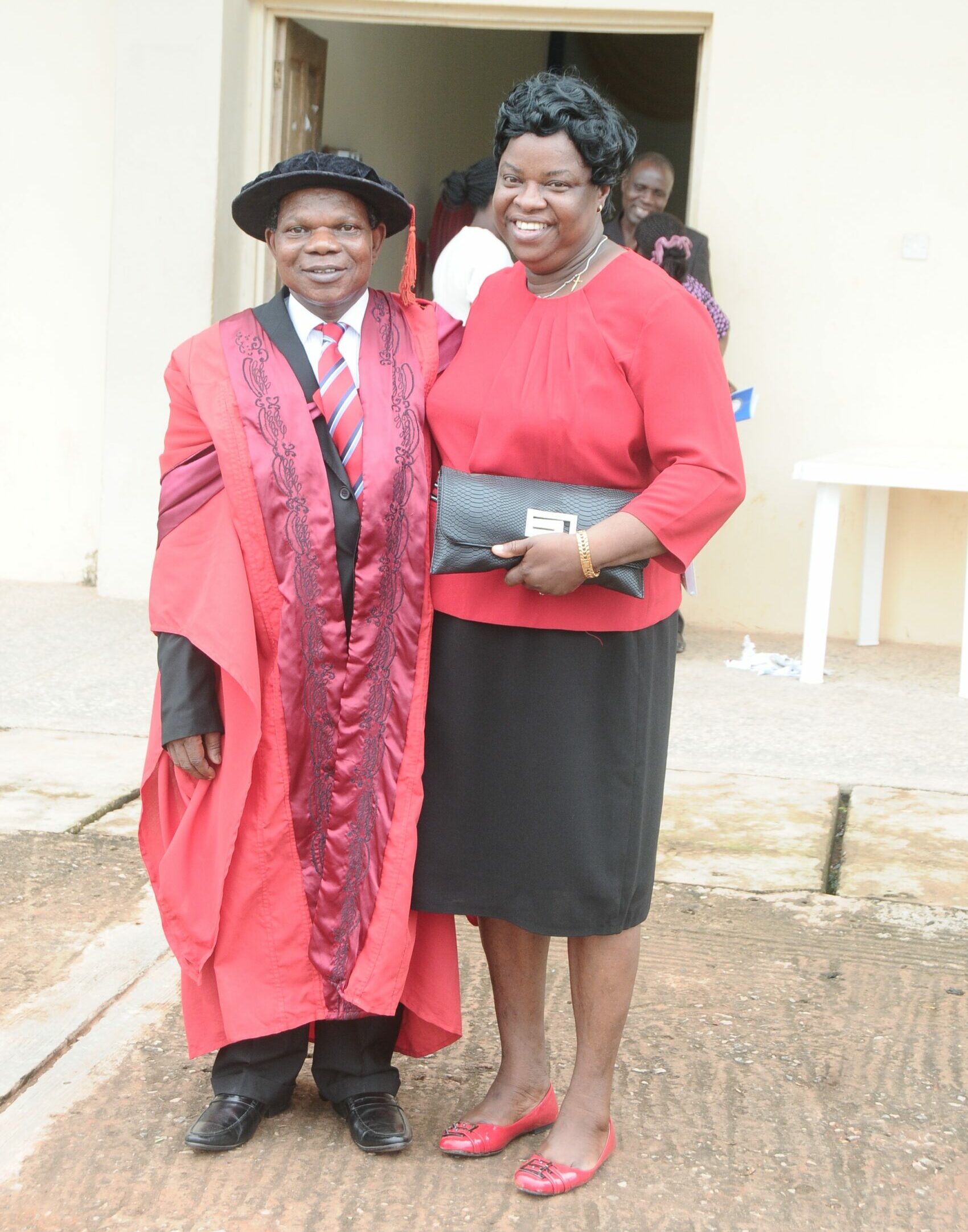
Sitting on floors – or, in this case, speakers and mats – is not the only sacrifice the couple had to make. Putting aside personal desires or ambitions in order to prioritise the needs of a relationship is tougher than many can envisage. And it is one Mrs Olatunji had to make.
Prof. Philip: My wife delayed her entry to residency. The principle she used was that she finished having children before she entered residency because we knew that it will stand in the way a little bit.
Dr Ayodeji: He started his residency as soon as we finished. I took the decision knowing that we were mates. This is not a world of competition. I’d seen how some of our senior colleagues who married at the same time and went into residency training together had been unhappy and burdened their children with unhappiness. They were not doing well, also and found it difficult to their postgraduate exams. So I said, “I’ll do mine later.”
For a man with such high hopes for his daughter, her father was disappointed.
Dr Ayodeji: My father came and told me, “if it’s the right way my parents trained me that I trained you, why should he (my husband) be reading to become a consultant and you are not doing the same?”
But she had the perfect response
Dr Ayodeji: I had to tell him, ‘this is my home.’ I did my residency five years after. My husband had nearly completed his own before I started.
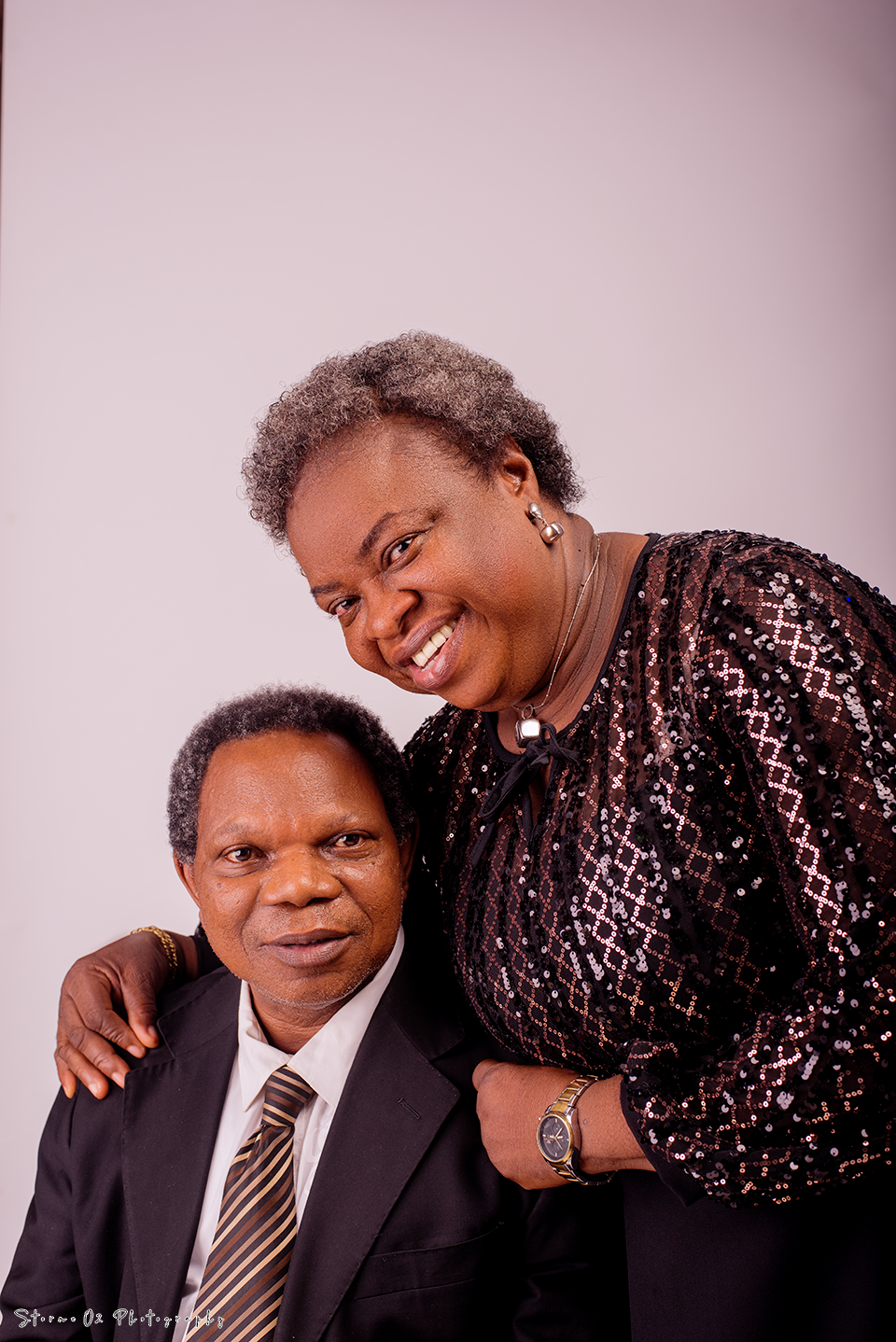
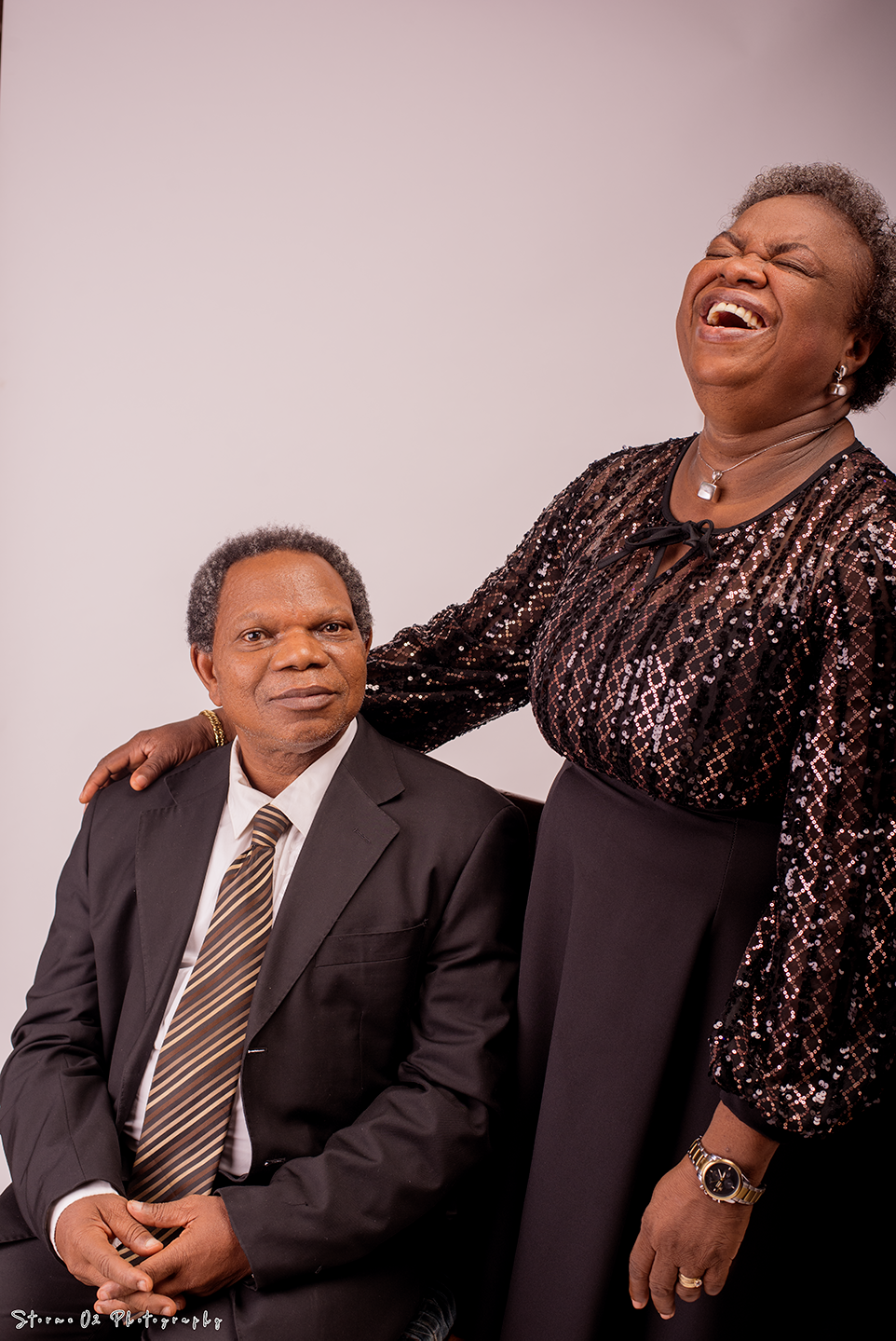
Becoming a medical doctor is a feat that requires years of rigorous education and training. For couples who are both pursuing this profession, the journey to parenthood can be brought with difficulties and overwhelming. How do you tend to them in their infant stages and guide them through their teenage years amidst the demands of a medical career?
Dr Ayodeji: There were times I needed a maid and times I had more than one. However, the work of my maids was outlined. I never made personal care of my children to a maid. She was to help in washing plates and keeping the house okay.
When they were in kindergarten, before 6, I bathed them in the morning and at night. When children go to school and sustain injuries, I am likely to know quickly and attend to it since I am the one bathing them. I also made their personal snacks, made my own chinchin, groundnuts and everything so that from Monday till Friday, I just packed what I needed. I also made the rule that breakfast was not optional.
I had maids all through and I think that reduced the stress. We also had lesson teachers coming home so we could supervise them. When it was time for biology teacher to be in my house, I’d call him. I also roamed the house to see what was going on. I asked the children what they did and did not do so. That communication was important.
Another thing we did not condone was children bringing in things that didn’t belong to them – like a child bringing home pencil that does not belong to him. We took him back to school and told the teacher that it was not his. I had my own brand of pencils so when they brought anything different, we knew. By so doing, they knew that it was not okay to bring other people’s things home.
We didn’t allow their teacher to go away with ‘this is how the school wants it.’ We gave them instructions about our children so they did not just become like one of the many children in school.
Prof. Philip: One of the things we did about parenting is that none of our kids went to boarding schools (and I am not recommending that to anybody.) We decided that primary and secondary school days were the only opportunity we had to pass anything to them. I remember that in Ilorin, we used to drive 17 km to school in the morning and pick them up in the afternoon. We had the opportunity of talking to them, praying with them, hearing and answering their questions.
This is where we also add that this is not our first encounter with the Olatunjis as we once featured their son, Tobi’s wedding. Catch up here if you missed it.
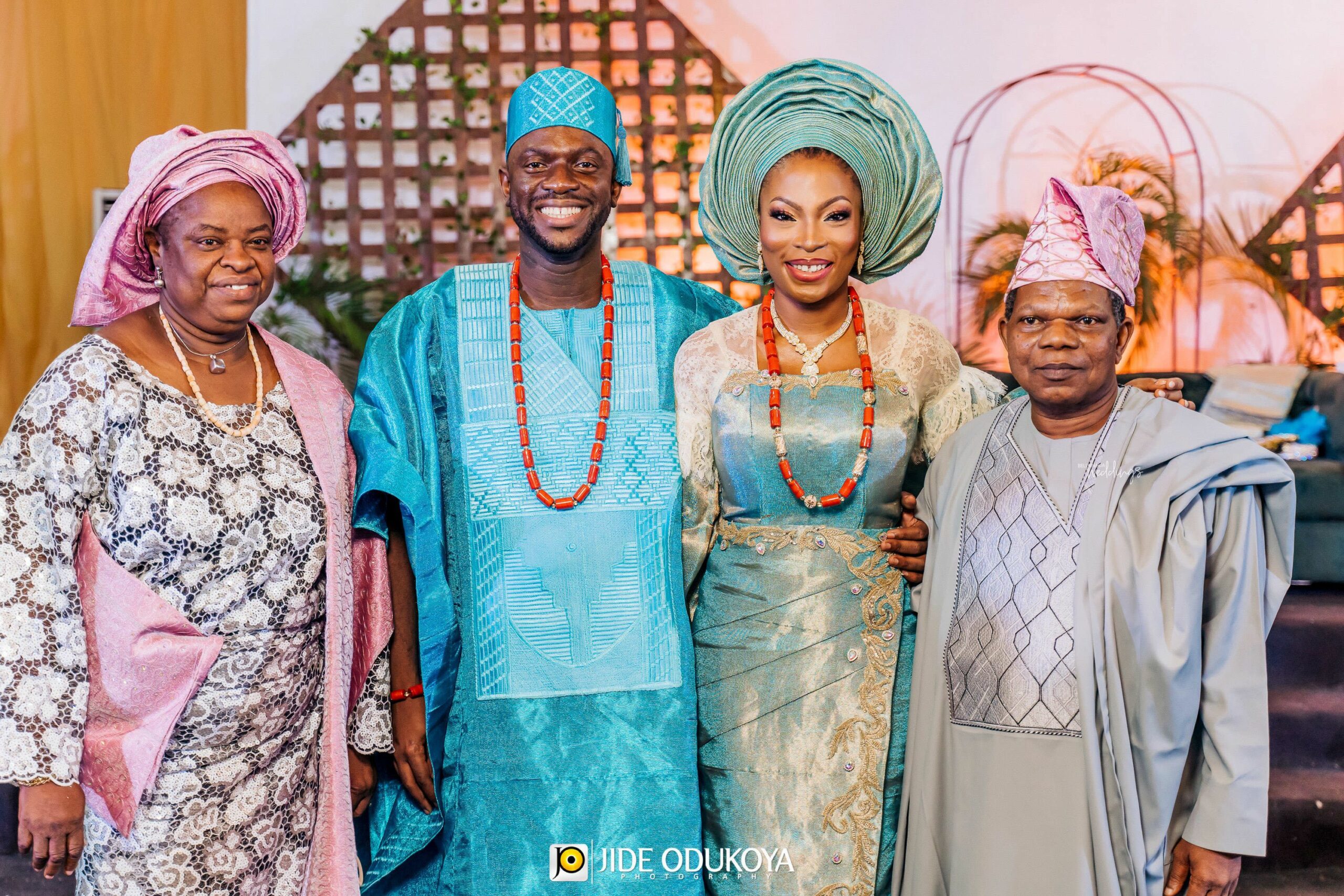
Dr Ayodeji: Parenting is mostly you (the parent) leading by example. I believe very strongly that children learn a lot through what they see, what they hear and a little more from what you tell them. So, it also boils down to how we relate. If my husband has hurt me, or there is something to discuss that will make me raise my voice at him, I’ll probably not do it. We’ll simply just tell ourselves to discuss it later so that none of our children would say there was a time they heard us raising our voices at each other. We’d rather go to our room and sort out ourselves.
The other thing about that communication style is that it also helped us to correct them as and when due. We were not going to have a favourite. We have 3 children, 2 boys and a girl and the only girl is not my favourite. She is my only daughter but she has the same opportunity as her brothers. Her own standard might not be what she thinks she should’ve had. But the truth is that we always look at it from the perspective of this is what your brothers went through, this is where you’re going to go to school in terms of which school they attended and what we bought for them. We tried our best.
I remember that one of the boys wanted to go to a particular secondary school and he was like, ‘some of his mates who were not even doing as well as he was were in the school,’ I said ‘no, you can’t.’ I came home to tell Daddy. I said, “Daddy, what this young man wants is impossible.” He came and said he’d win a scholarship and I said ‘It is not about that.’ I remember that at the end of his first year in UI, he came home one night and said “Daddy and Mommy, I just want to say thank you.” We were like, thank you for what? Seeing his classmates, he realised that he was privileged and that was heartwarming for me.
Parenting has to be the understanding that there is no attempt to push one above others. That is why I say my children are 3 unique individuals with different characteristics. We raised them not trying to suppress anyone’s personality for the other. That is the parenting style we adopted.
Listen. They did that!
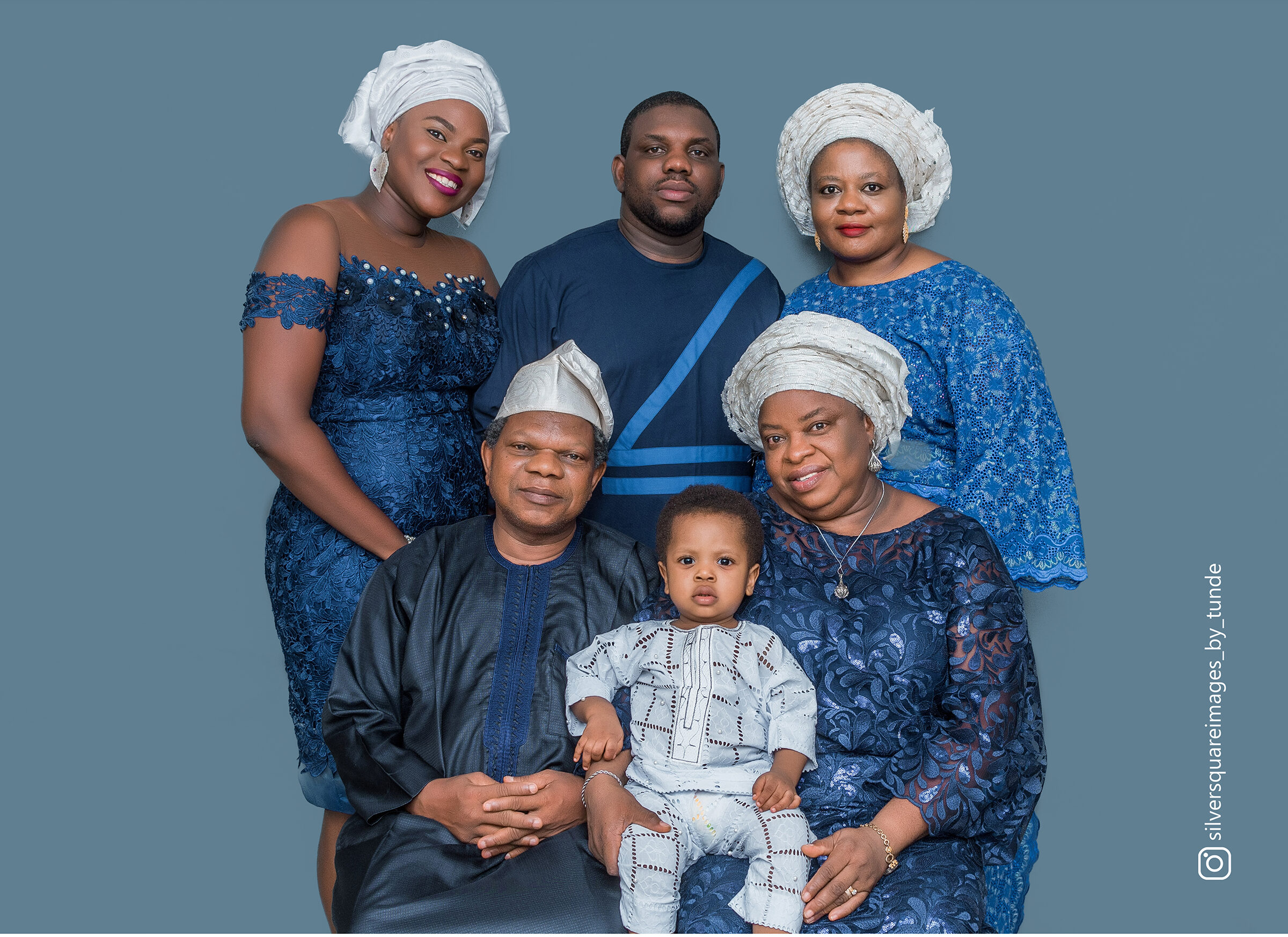
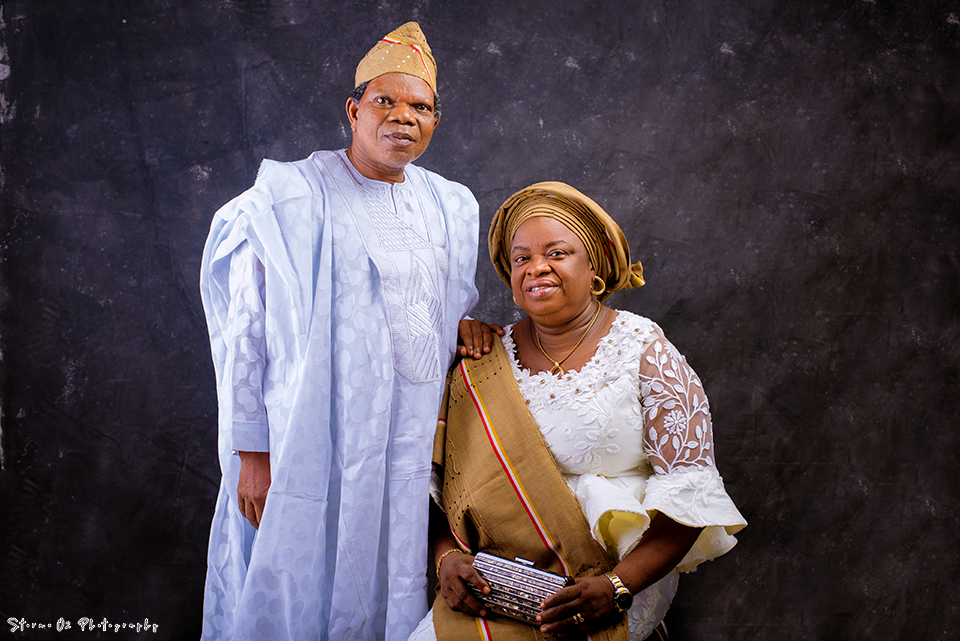
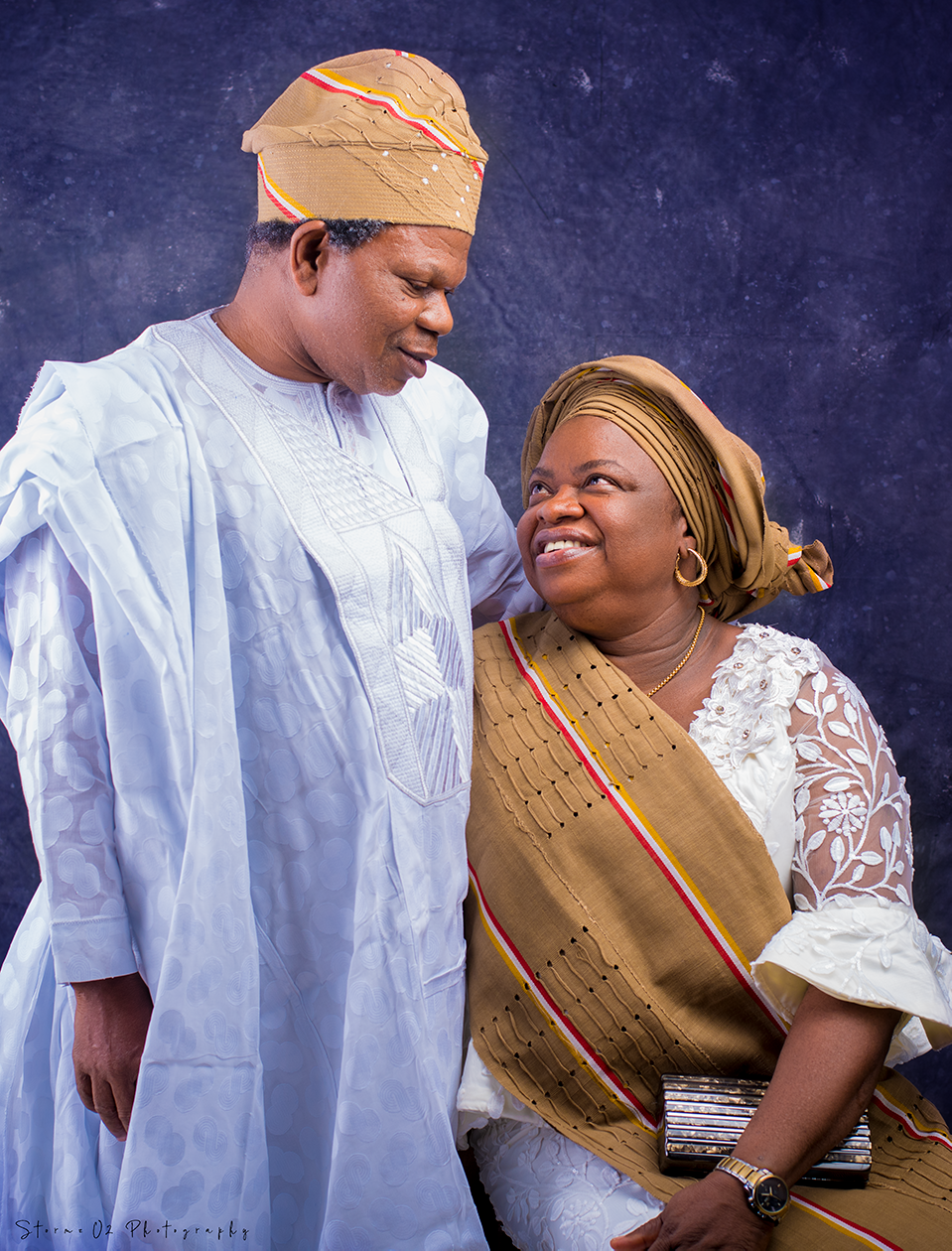
The Olatunjis have been married for 45 years, but for the couple, it seems just like yesterday. They have nurtured their love with care and kept the fire of romance burning through the years.
Dr Ayodeji: Maybe I should say that we have some traditions? We eat together as much as possible. My husband will not eat if I am not home. He also shares his meat with me. He said, ‘You know that thing that we did on the wedding day that you give a piece of cake to your husband and the husband gives to his wife, it must be continuous.’ That’s something we’ve been doing right from the beginning and we still do it to date.
Also, we must kiss and hug before anyone travels and we call regularly or send a chat or something. So when we are really apart from each other – say he had to go for a meeting, we are in touch. When we are together and I’m running off to work, or he is running late for a meeting, he’ll come back and give me my peck because if he leaves without doing that, he’ll come and pay double tomorrow. So, those are things that although look small, we look forward to and we can tell each other ‘Oh, I miss you.’
Secondly, we talk a lot so late into the night. We are never tired of each other. I remember one of my big aunts was asking what we were always talking about until night. I think that binds us together. Whenever we get home from work, we talk about what happened at work – who did you talk to? What did you see on the roadside, who pissed you off? You know, you relieve the whole thing again so stresses at work don’t really have a place to settle.
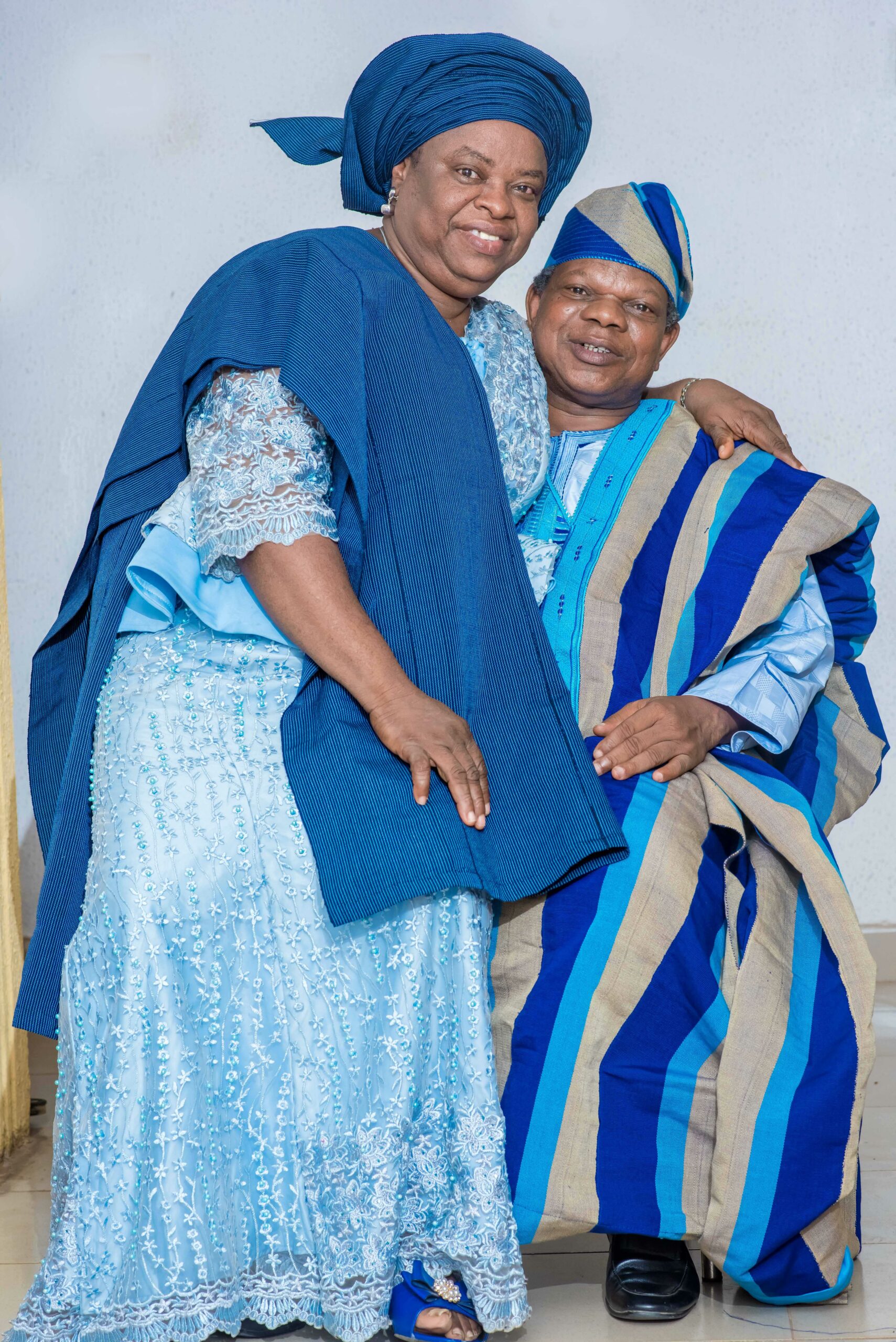
A lover, a husband, a father and an amebo partner? That’s a complete package. And when you add a reliable financial package, you realise you have won in life.
Prof. Philip: Since the day of our wedding, we have never had different accounts. We have had joint accounts. And that doesn’t mean it is easy to run but we have run it successfully. Let me also say I think that most people who end up having problems with their spouses already saw the problem before marriage. Very importantly, if somebody has broken your arm during courtship, why are you surprised if the person breaks your leg after marriage?
The success of a marriage can already be predetermined. So if you’re going out with somebody and during an argument, he gives you a slap or boxes you or brings out a knife, and says sorry kneeling down or lying down, that should give you the red flag.
Everyone says marriage is a beautiful thing. What everyone does not say is how easily it can crumble when both parties don’t put in the work. A little compliment here and there goes a long way, a little compromise from both parties, forgiving each other when they err, taking that extra mile for one another… But, of course, we are not the ‘marriage experts’ here, the Olatunjis are.
Dr Ayodeji: To the ladies, I always say let us be sure. Love is not blind.
When we got married, I used to tell my husband I didn’t want a man like my father. He didn’t understand but in our relationship, I began to point out some of the things he did that my father did too. And he adjusted.
The final thing is don’t keep your anger forever, don’t keep a record of wrongdoings. You must talk about it and work on it.
Prof. Philip: For those of you who read, many of you have read too much about marriage that you have read beyond it. Your knowledge is already beyond it. It is good to read, you have read about a man that wakes up and brings coffee to his wife every morning and you’re expecting the same. All men don’t do like that.
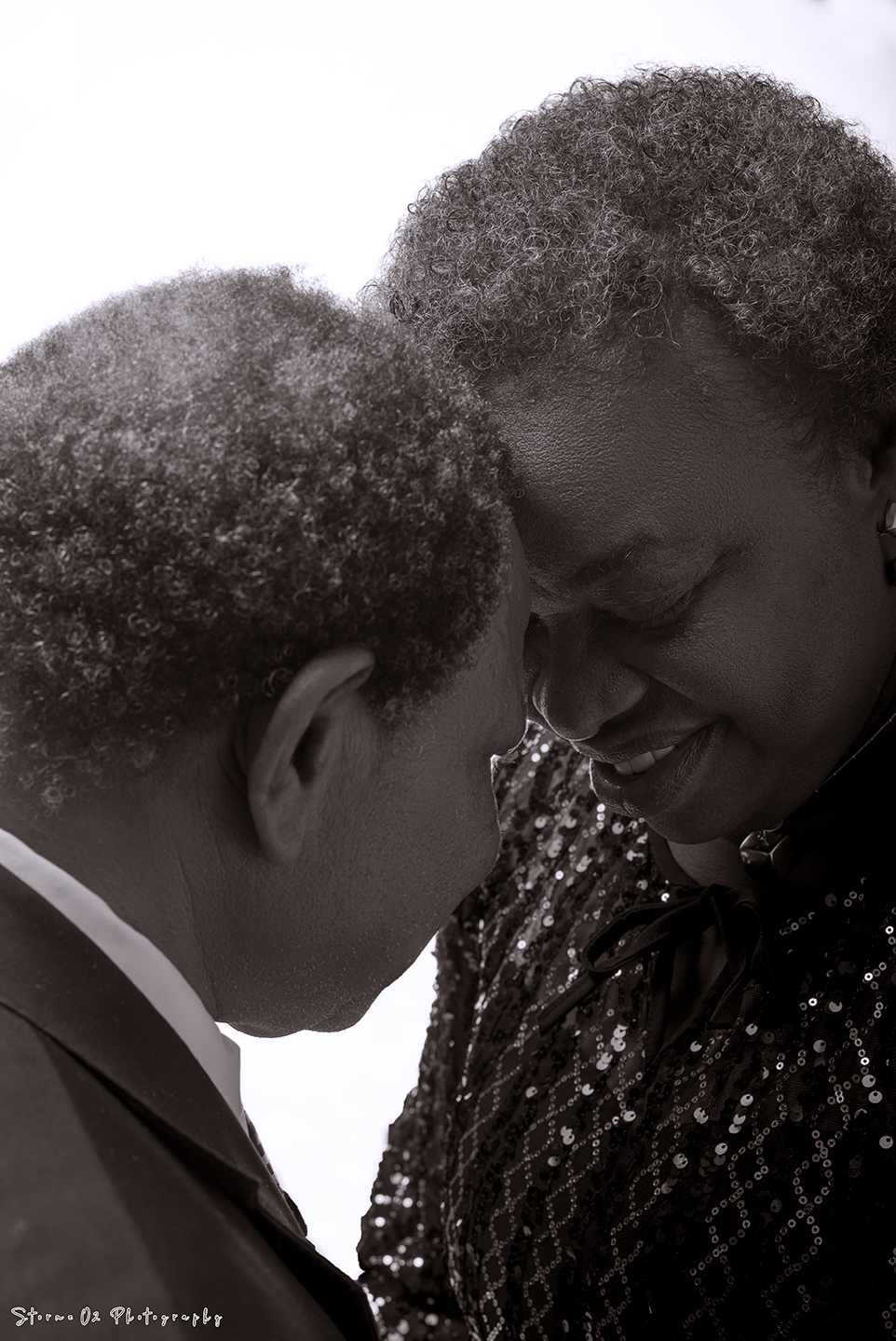
Prof. Philip: We are not the same, you don’t know what the man does to his wife after giving her the tea. If that’s all that you read and that’s what you want to use to gauge marriage, hmmm…
You see, marriage is an experience. You can help your marriage by reading, but you don’t have to follow everything you read. Go with an open mind, and make the best of it. Make adjustments for each other so that things can work the way God wants them to work.
***
Did you miss the first edition of The Ever After Series? Read all the episodes here.
The post 45 Years Ago, Love Came Knocking for The Olatunjis and it’s Been Happy Ever After Since Then appeared first on BellaNaija - Showcasing Africa to the world. Read today!.
from BellaNaija https://ift.tt/XA2vIis
via IFTTT
